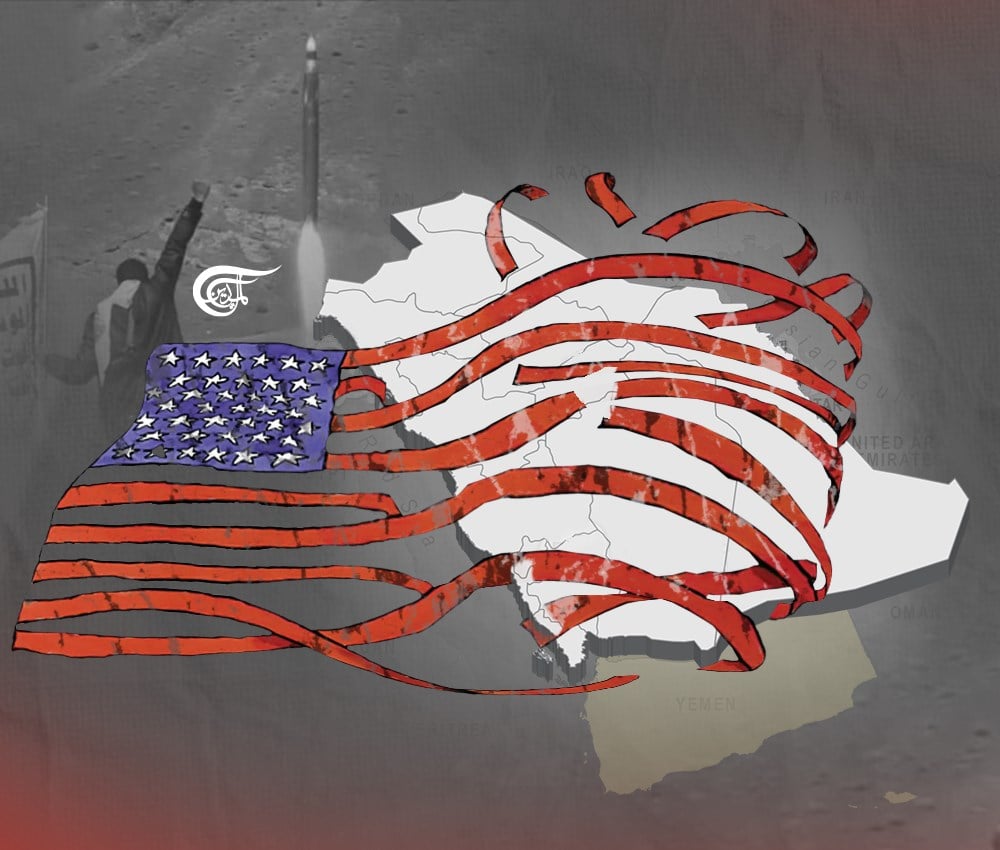How Ansarallah defeated the US and left no choice but for Saudi-UAE concessions
The US is trying everything it can to cover up its massive failure in the Arabian Peninsula, which is why it is so important to point out that the Yemeni resistance played a key role in shaping today's reality.
-

Riyadh knows that if the war in Yemen kickstarts again, its critical infrastructure will be struck and there’s nothing it can do to stop this, creating the equation that if one side suffers, both sides bleed.
The recent push towards finding a peace deal between Yemen’s Ansar Allah and Saudi Arabia reflects the failure of US hegemonic power politics in the Arabian Peninsula. This decline in American power has Washington-based think tanks outraged as they attempt to blame any external power, however, what has happened in Yemen is the direct result of Ansar Allah’s military strategy.
Following the Chinese-mediated Saudi-Iran deal, paving the way to a restoration of ties, a number of moves towards Middle East inter-regional cooperation have taken place. Qatar has announced its decision to restore diplomatic ties with both Bahrain and the United Arab Emirates (UAE), Tunisia has formalized ties with Syria, as a number of other nations such as Saudi Arabia and Turkey are looking to do the same. It also seems as if the Arab League is on the cusp of re-integrating Damascus. All these moves make the US seem weak, running counter to its Middle East agenda and creating the optics that the rising role of Beijing is restoring peace; replacing Washington’s imperialist agenda that is viewed to be divisive and a precursor to every conflict in the arena.
When it comes to the ongoing Yemen-Saudi peace talks aimed at ending an eight-year conflict that has inflicted around 400,000 deaths on the Yemeni people, the situation here cannot simply be explained as taking shape due to an organic decline of US influence over Riyadh. On the contrary, the war in Yemen is a prime example of a successful defeat of Washington’s strategy, not only in Yemen, but for maintaining its dominance over the Arabian Peninsula altogether.
According to a recently leaked Pentagon document, the US “top secret” document states that a “Huthi [Ansar Allah] intelligence source apparently assessed that if the Huthis issued a ‘strong statement,’ it would increase pressure on the Saudis, as the Saudis intended to drag out negotiations and avoid making firm commitments,” this refers to pressuring Riyadh on the issue of it paying the salaries of civil servants in Yemen. It is still unclear as to the level of validity of the recently leaked Pentagon documents, however, if true, this greatly illustrates the position of Ansar Allah in the ongoing talks with the Kingdom of Saudi Arabia.
The war that was launched on Yemen implemented a multi-fold strategy, using a coalition of Arab and international powers to remove the leadership of Ansar Allah and effectively dominate the country. The chief backer of the Saudi war effort, launched on the orders of Saudi Crown Prince Mohammed Bin Salman in 2015, was the United States of America. Most problematically, the US has not only supported the war efforts against Yemen directly, but has provided diplomatic cover for the blockade of the nation; the siege imposed on Yemen has been the primary cause of death and suffering, blocking medical goods and other essential supplies from entering the country.
Overtly, the US strategy in Yemen has been to back peace talks, give lip service to solving the humanitarian crisis, whilst covertly supporting an agenda to regain dominance over Yemen and to also secure its interests in Saudi Arabia as well as the UAE.
The war in Yemen was supposed to be a quick endeavor, in the minds of the Saudi leadership, a military aggression which would quickly stamp Riyadh’s supremacy and quickly solve the crisis in Sanaa. The very opposite occurred, and Ansar Allah managed to wage a protracted war that was costly to Saudi Arabia. However, during the first years of the aggression, the Ansar Allah forces were unable to achieve a strong deterrence equation against the superiorly equipped invaders and proxy forces.
A quagmire scenario, where a comprehensive defeat could not be achieved by either side, was ideal for the United States strategically. It meant that whilst Saudi Arabia was bogged down in Yemen, it could strengthen its military alliance with the Kingdom, using the war as a pretext for providing further security arrangements. In addition, the US would continue deploying its forces to Saudi Arabia, which used American servicing to keep its purchased military assets functional, as well as for providing logistical support during the war.
In late 2021, it began to become apparent that the presence of American soldiers and the installation of US-made air defense systems were inept at properly repelling attacks from Ansar Allah. For years, the Yemeni resistance forces had worked on developing more advanced missiles and drones, until they could directly target the key infrastructure of both Saudi Arabia and the United Arab Emirates. In early 2022, Ansar Allah began launching precision missile and drone attacks at Abu Dhabi and Dubai. To deliver the message more clearly, when Israeli President Isaac Herzog arrived in the UAE on his first ever official visit, Ansar Allah launched another missile attack. In April, the United Nations then announced that it had secured a temporary ceasefire between Riyadh and Sanaa, this was later adopted by the US as if it was its own doing; the Biden administration, in reality, had nothing to do with it.
It was at this point, in January of 2022, when Ansar Allah’s missiles began targeting the UAE, that it became abundantly clear to all US allies in the Arabian Peninsula that Washington’s agenda would not aid their domestic security, but instead could endanger it. If we look at it statistically, in 2015 there were guided missiles/rockets that made up only 15% of Ansar Allah’s cross-border munitions fired towards their enemies, while in 2022, 89% were guided missile/rocket attacks.
Yemen’s Ansar Allah not only held out against an internationally backed multi-front attack, but played one of the largest contributing roles in the decline of US power in the Gulf Arab States. Washington’s policy has been for years based around creating a model of opposition to the Islamic Republic of Iran and its allies, using this as a justification for such heavy involvement in the likes of Saudi Arabia. When the Yemeni resistance made a point of proving that the US, and its top Middle East partner "Israel", cannot protect Arab States from the missiles of the resistance, they were forced to listen.
Riyadh knows that if the war in Yemen kickstarts again, its critical infrastructure will be struck and there’s nothing it can do to stop this, creating the equation that if one side suffers, both sides bleed. This is now the reality, the US has nothing to offer other than through the might of its military machine. When the military power of the US is no longer capable of providing security and stability, Washington loses its attractiveness and foreign powers will seek an alternative.
Although Washington-based think tanks are releasing pieces that seek to undermine the significance of a potential Saudi-Ansar Allah truce, it is the natural next step forward and will provide major benefits for both sides. One of those think tanks, the Middle East Institute (MEI), released a piece entitled “A Saudi-Houthi deal won’t bring lasting peace in Yemen'', which effectively argued that this would be a victory for Iran, and that Tehran would cause chaos in Yemen even with Saudi-Sanaa peace. This is not surprising, coming from a think-tank that received $2,300,000 from the Embassy of the UAE and $232,699 from the US Department of State in 2022. The US is trying everything it can to cover up its massive failure in the Arabian Peninsula, which is why it is so important to point out that the Yemeni resistance played a key role in shaping today's reality.

 Robert Inlakesh
Robert Inlakesh
 8 Min Read
8 Min Read











